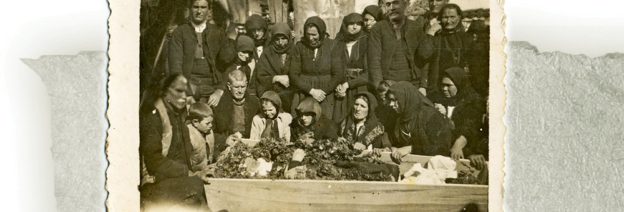The REAL Value of Funerals (That Are Scientifically Proven)
November 28th, 2022
Ever been called irrelevant before, funeral pro?
It seems that as cremation rates rise, so too, does this story line.
Many families are beginning to think funerals are unnecessary.
One reason is because families simply don’t have the education on why they’re important.
Another reason is that a lot of traditions that were previously relevant, are no more.
From what we see, there is a major need for a reinvention of what a funeral service is.
It’s not that funeral services aren’t helpful (and that’s what we’re sharing here). It’s simply that HOW we do them is changing.
So today, we’re going to focus on the science & research that supports the importance of funerals. And we highly recommend you find ways to share this with your families!
And in the future, we’ll write a blog on the new role of the funeral professional, so stay tuned!
Keep reading to learn 6 scientifically proven ways that funerals are not only valuable, but necessary in our modern culture:
#1: Untreated grief causes distress and depression in individuals & our society
The research: “Many countries’ studies suggest that around 6% to 20% of a bereaved population show significantly increased distress and depression” [sources 1 and 2].
Our conclusion: If this is true, then, the question arises: how does grief affect our society if the individuals in it are grieving and depressed? And what kind of support can we offer them?
Read More: 9 Facts About Grief We Bet You Didn’t Know
#2: Without funeral services, our population faces many grief complications
The research: “Drawing upon some 800 visits to older adult mourners, researchers cited more mental health issues in grief recovery for adults with no funeral services (34% grief complications) than for those who had experienced full funeral services (12% complications)” [source].
Our conclusion: Funeral services are important to our modern society. And without them, we’d likely be in big trouble mentally & emotionally, not only individually but as a collective.
#3: A well trained and well intentioned funeral director makes a big difference
The research: “Whether or not funeral directors or their critics like it—and regardless of whether they have received formal training in crisis intervention and mental health service—funeral directors directly influence the grief of the survivors they serve” [source].
Our conclusion: Since funeral director’s influence on families is so prominent, it’s important to have emotional intelligence and proper grief support training. How well trained do you feel to handle the complex emotions of grieving families?
Read more: 6 Skills Needed to Provide Memorable Client Family Support
#4: Taking an active part in the planning of a funeral service or ceremony creates more healing for all
The research: “Grieving individuals who… actively participated in the planning of the ceremony, reported statistically significantly fewer grief symptoms on the GEI” [source].
Our conclusion: Let’s say goodbye to direct cremation, no service funeral options. Getting families to take part in the planning process with you is SO key for their healing! And this research is here to prove it. It might mean educating them on this exact topic. When families know the SCIENTIFIC and OBSERVATIONAL benefits of funerals, there sure will be an uptick in those who choose to have a service, ritual or ceremony of some type.
Read more: 10 Questions to Ask Families That Turn An Average Funeral Service Into A Unique Celebration
#5: Viewing the body is still of great importance for the grieving

The research: “Widows and widowers… who had viewed the body at the funeral had fewer mental adjustment problems than those who had not” [source]. Additionally, “children attending visitations reported significantly better outcomes than those who did not—and showed significantly fewer PTSD symptoms at 25 months after parental death [source”].
Our conclusion: The research out there still proves the importance of viewing the body. Yet the viewing of the body does not have to mean a traditional funeral or burial. Work together to create ways to allow for a viewing for those who choose options that do not include embalming.
#6: The power of funeral ritual is real — and necessary

The research: “In the face of tragedy or grief, meaningful rituals can assuage or express what words cannot” [source]. The research continues: “Even in secularized [cultures], rituals prove more effective than psychological help-seeking for bereaved families [source”]. Lastly, “Among a variety of sacred rituals, music, in particular, may enable mourners to accept or release complex emotions” [source].
Our conclusion: The science is clear – ritual isn’t just fluffy, spiritual hubbub. It’s a really incredible tool to tap into at your funeral home. The word ritual isn’t necessarily here to represent religious traditions either. Most rituals create meaning outside of religion. More so, they are spiritual in nature. With the decline of religion becoming more and more rapid, it’s time to accept and create space for ritual in the funeral profession.
Read more: The Power & Potential of Funeral Rituals (That You Never Realized)
How did this content resonate for you? We’d love to hear in the comments below!




A very nice piece, highlighting the huge can being kicked down the road by the no skill no empathy disposal merchants peddling Direct Cremation.
We now have the Scottish Government socially engineering attitudes towards Direct Cremation with up to ‘£1000 cash back’ for those receiving state funeral financial help choosing disposal.
I’m sorry to hear that Jim. I have true faith we’ll start to see the value as a collective sooner than later. It might get ugly before it gets better!